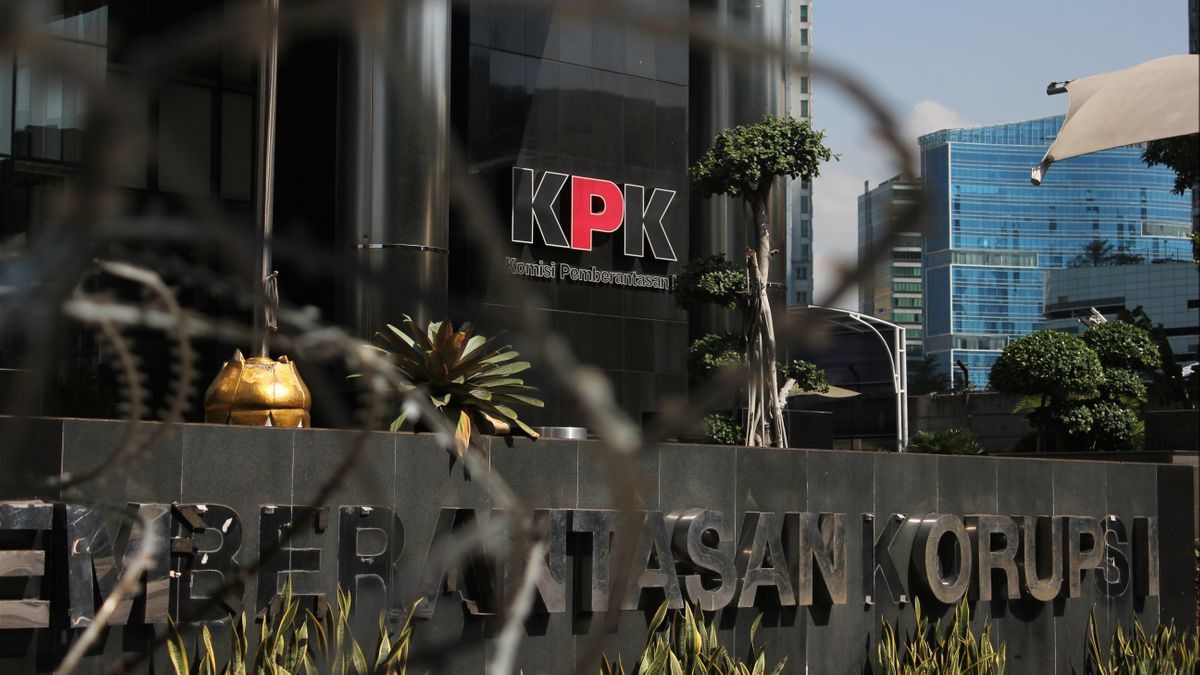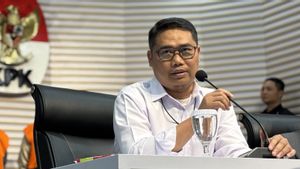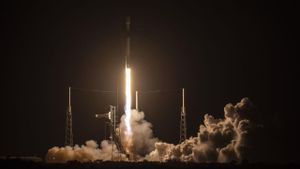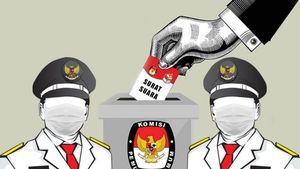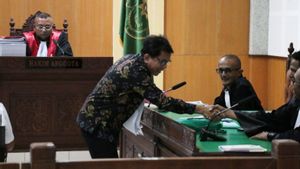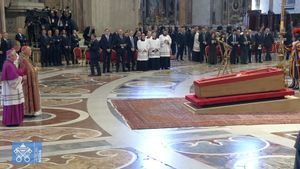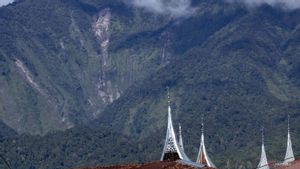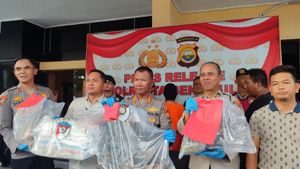JAKARTA - The Indo Barometer Survey Institute released the results of their survey which stated that the level of public trust in the Corruption Eradication Commission (KPK) has decreased. Even though it remains high at 81.8 percent, the institution led by Firli Bahuri cs is out of the top three, not as usual.
"Usually the KPK is always in the top three with the TNI and the President of the Republic of Indonesia," said Executive Director of Indo Barometer Muhammad Qodari when presenting the results of his survey some time ago.
The survey, which was conducted on January 9 to January 15, 2020, involved 1,200 respondents from 34 provinces. Meanwhile, the margin of error for this survey is around 2.83 percent with a confidence level of 95 percent.
Meanwhile, in the top three of the survey results, it states that if the TNI is trusted by the public up to 94 percent, the President of the Republic of Indonesia is trusted by the public by 89.7 percent and religious organizations such as NU and Muhammadiyah are trusted by the public up to 86.8 percent.
In fact, in the era of Agus Rahardjo or in 2017, Indo Barometer also conducted a similar survey. As a result, the KPK is in the top three with a public trust figure of 83 percent.
Responding to the decline of the KPK from the top three institutions trusted by the public, Indonesia Corruption Watch (ICW) assessed that the results of this survey seemed to describe the declining conditions of corruption eradication and made the public lose their trust in this institution.
According to an ICW researcher, Kurnia Ramadhana, the decline in public trust was due to two things. First, the KPK's Capim Selection Committee has instead determined a candidate who is full of controversy. During the selection process, Kurnia said that the committee often neglected aspects of the track record and integrity of candidates.
"As a result, the five elected KPK leaders had many records, ranging from suspected violations of the code of ethics and low compliance in LHKPN reporting. Not to mention the relationship between the KPK leadership and the corruption case that was currently being investigated by the KPK," said Kurnia to VOI in his written statement, Tuesday. , February 25th.
In addition, Kurnia also mentioned the revision of the Corruption Eradication Commission Law which has now been ratified as Law 19 of 2019. According to him, all the processes carried out in the preparation of this revision were deemed odd.
In its notes, ICW also assesses that there are several points of revision that suggest an intention to weaken the anti-graft institution, such as shifting the meaning of KPK independence, erroneous formation of oversight instruments, excessive authority from the supervisory board, termination of case investigations, and the status of KPK employees to become state civil servants. .
As a result, after only a few weeks of being inaugurated, the Firli Bahuri-era KPK immediately felt the bad impact of the revision of the law and the public could see that. The bad impact he meant, he said, was obvious when this anti-graft agency investigated the bribery case against former KPU commissioner Wahyu Setiawan.

Because, in this case the KPK leadership failed to explain the problem related to the canceled PDIP office sealing plan, the KPK leadership failed to protect the team that was looking for Harun Masiku at the Police Science College (PTIK), the KPK leadership acted arbitrarily against their investigator, namely Kompol Rosa and finally, Firli, as the chairman of the Corruption Eradication Commission (KPK), has instead played gimmicky politics, such as when he was a fried rice chef.
The decline in public trust in the KPK, Kurnia assessed that it could not be separated from the low commitment to anti-corruption from the President and the DPR. "Because, both the election process for the leadership of the KPK and the ratification of the revision of the KPK Law are political products produced by the President together with the DPR," he said.
So, reflecting on the results of the survey and the notes it has on the current performance of the KPK, ICW then asked President Joko Widodo to immediately issue a Perppu to cancel the KPK Law 19/2019.
"This is important to do in order to save the corruption eradication agenda in the future and to rebuild the credibility of the KPK as an anti-corruption body that has been respected so far," said Kurnia.
He also emphasized that President Jokowi does not need to wait for the results of the material test at the Constitutional Court to issue a KPK Perppu. This is because issuing a Perppu is the president's right that has nothing to do with the judicial review process.
"In fact, the issuance of the Perppu is believed to accelerate the recovery process of the KPK from damage caused by the revision of the KPK Law," he concluded.
The English, Chinese, Japanese, Arabic, and French versions are automatically generated by the AI. So there may still be inaccuracies in translating, please always see Indonesian as our main language. (system supported by DigitalSiber.id)
